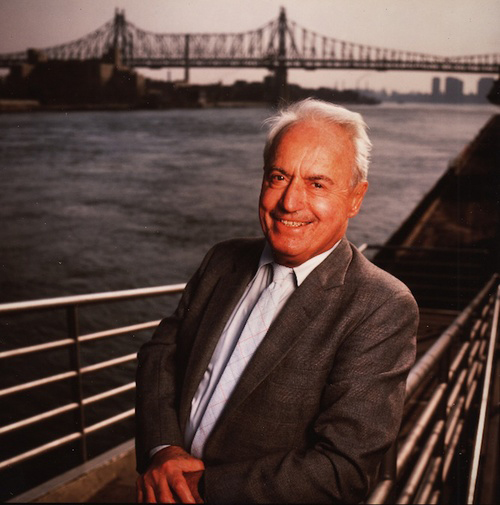
By Robert Gluck/JNS.org
With another season of “America’s pastime” beginning March 22, famed Jewish executive Marvin Miller remains out of the National Baseball Hall of Fame. Why is that the case?
Bob Locker—a major league pitcher from 1965-75 and creator of a Marvin Miller tribute site, ThanksMarvin.com—blames ownership for the exclusion of Miller, the pioneering executive director of the Major League Baseball Players Association (MLBPA) from 1966-82.
“It’s a good old boys’ fraternity and has been for years,” Locker told JNS.org regarding Major League Baseball (MLB) team owners. “Until Marvin, they were used to having whatever they wanted, however they wanted it, in Major League Baseball. When they had to look at the game and the players, they resented it. It hurt. After all, the Hall of Fame is about the people who had the greatest impact on the game of baseball. To me, Marvin Miller is number one.”
Miller died in November 2012. Born in 1917 to Jewish parents in the Bronx, he grew up in Brooklyn rooting for the Dodgers. His father, Alexander, was a salesman for a clothing company on the Lower East Side. As a youngster, Marvin walked a picket line in a union-organizing drive. His mother Gertrude taught elementary school and was a member of the New York City teachers union, now the United Federation of Teachers.
Perhaps his early exposure on the picket line led him to his life’s work—transforming the baseball players’ union into one of the strongest in the United States.
A member of the National Jewish Sports Hall of Fame, Miller wrote in his memoir, “A Whole Different Ball Game,” that in his estimation “ballplayers were among the most exploited workers in America.”
Locker, who pitched for five different teams and was a member of the 1972 World Series champion Oakland Athletics, said his tribute site collects memorabilia about Miller in an attempt to raise awareness of his legacy’s importance to American labor unions, and to get Miller elected to the Baseball Hall of Fame. In December 2013, Miller’s candidacy failed to garner enough votes for 2014 induction as one of 12 names on the “Expansion Era” ballot—for those Hall of Fame candidates who are no longer eligible to be considered in the regular ballots cast by the Baseball Writers’ Association of America, but are instead evaluated by a special 16-member committee.
“[Former MLB pitcher] Jim Bouton and I decided to mount a campaign to get some logic into the minds of the people of baseball about what [Miller] meant to the game and all of sports,” said Locker. “That’s why I started the website. Many came to the site and praised him.”
Miller is considered the labor negotiator who changed the character of American professional sports. As executive director of the MLBPA, he presided over the suspension of the “reserve clause” that bound players to the team that held their contract, the introduction of salary arbitration in player-management disputes, and the birth of free agency, which allowed a player movement to seek the best offer for his services. Peter Seitz, the arbitrator who invalidated baseball’s reserve clause in 1975, wrote in a 1983 letter to the New York Times that Miller was “the Moses who had led baseball’s children of Israel out of the land of bondage.”
Brad Snyder—a University of Wisconsin law professor and author of “A Well-Paid Slave: Curt Flood’s Fight for Free Agency in Professional Sports,” a book that gives an in-depth look at the outfielder’s famed lawsuit that challenged the reserve clause—said Flood’s suit was a crucial event in the history of professional sports. It afforded Flood a historical status often compared to that of Jackie Robinson (who broke baseball’s color barrier), but it remains both underappreciated and misunderstood, Snyder told JNS.org.
Miller was the “chief architect and grand strategist of Flood’s lawsuit,” explained Snyder.
“It wouldn’t have happened without Marvin,” he said. “He ran Flood through the paces. He told Curt this would ruin your career; you will never get a job in baseball again. Curt asked Miller, ‘Will it benefit future players?’ Miller said it would, and Curt said ‘That’s good enough for me.’ It’s rare that professional athletes are that altruistic. It showed Curt’s real qualities but also showed Marvin’s true qualities.”
According to Snyder, as a leader Miller chose not to “give people marching orders.”
“His strategy, as head of the players’ association, was to let the players run the organization,” Snyder said. “His job was to give them the most information he could give them. Using his experiences as a labor leader, he showed them the benefits of being united and that what they could accomplish collectively was greater than a bunch of individuals. He was an educator.”
The MLBPA won $20 million in salary and pension benefits in Miller’s first six years as director. Minimum salaries went from $6,000 to $13,500, travel was first class, liberal meal allowances were initiated, and players’ financial gains soared directly and indirectly from increased pension benefits. By the time Miller stepped down, players’ salaries averaged more than $500,000.
“Marvin showed all professional sports the power of free agency, and he showed owners that they needed to share the pie with the players,” Snyder said. “Today, post-Marvin, it’s a given that players are entitled to their piece of the pie. Marvin made the players realize they were being exploited in a pre-free agency era.”
*
Preceding provided by JNS.org, which is sponsored on the pages of San Diego Jewish World through the generosity of Dr. Bob and Mao Shillman.
*
San Diego Jewish World seeks sponsorships to be placed, as this notice is, just below articles that appear on our site. This is an ideal opportunity for your corporate message or to personally remember a loved one’s contributions to our community. To inquire, call editor Donald H. Harrison at (619) 265-0808 or contact him via donald.harrison@sdjewishworld.com